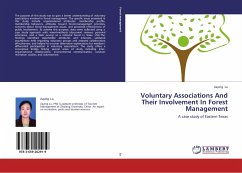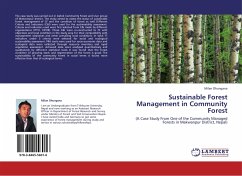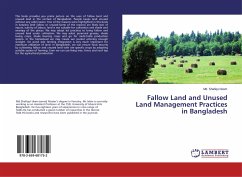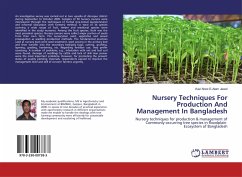Decentralization in forest management policies started as a response to institutional malfunction; and during the last decade, institutional changes like people oriented forest management (PFM) paradigms have become major policy trends in many of the world s developing countries. This book first outline the different actors involved in PFM process, and then explores the impacts of PFM on the livelihoods and poverty alleviation of forest dependent people. The overall livelihoods analysis revealed that PFMs are not sufficient to develop sustainable livelihoods of participants and conserve Sal forests. The book also analyzes the ability of agroforestry program towards poverty alleviation at local level and the results shows that agroforestry program alleviated 63.36% poverty compared to the previous situation of participants and 32.87% compared with control farmers. Finally, based on the overall findings and Indian experiences, it would be highly recommend promoting PFM program withproper government facilities and also empowering local community in which local people plays the central role in governing all of their development activities.
Bitte wählen Sie Ihr Anliegen aus.
Rechnungen
Retourenschein anfordern
Bestellstatus
Storno








